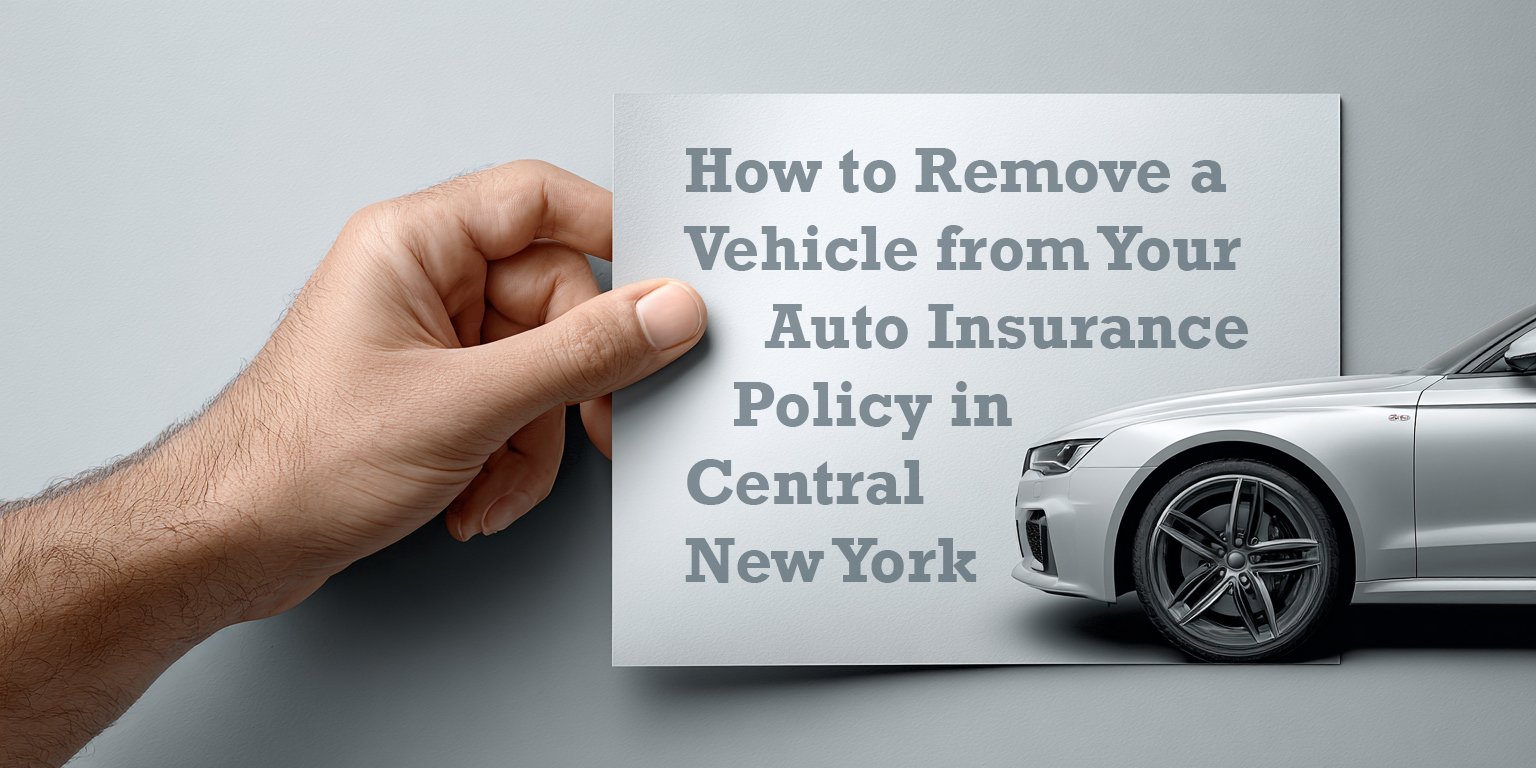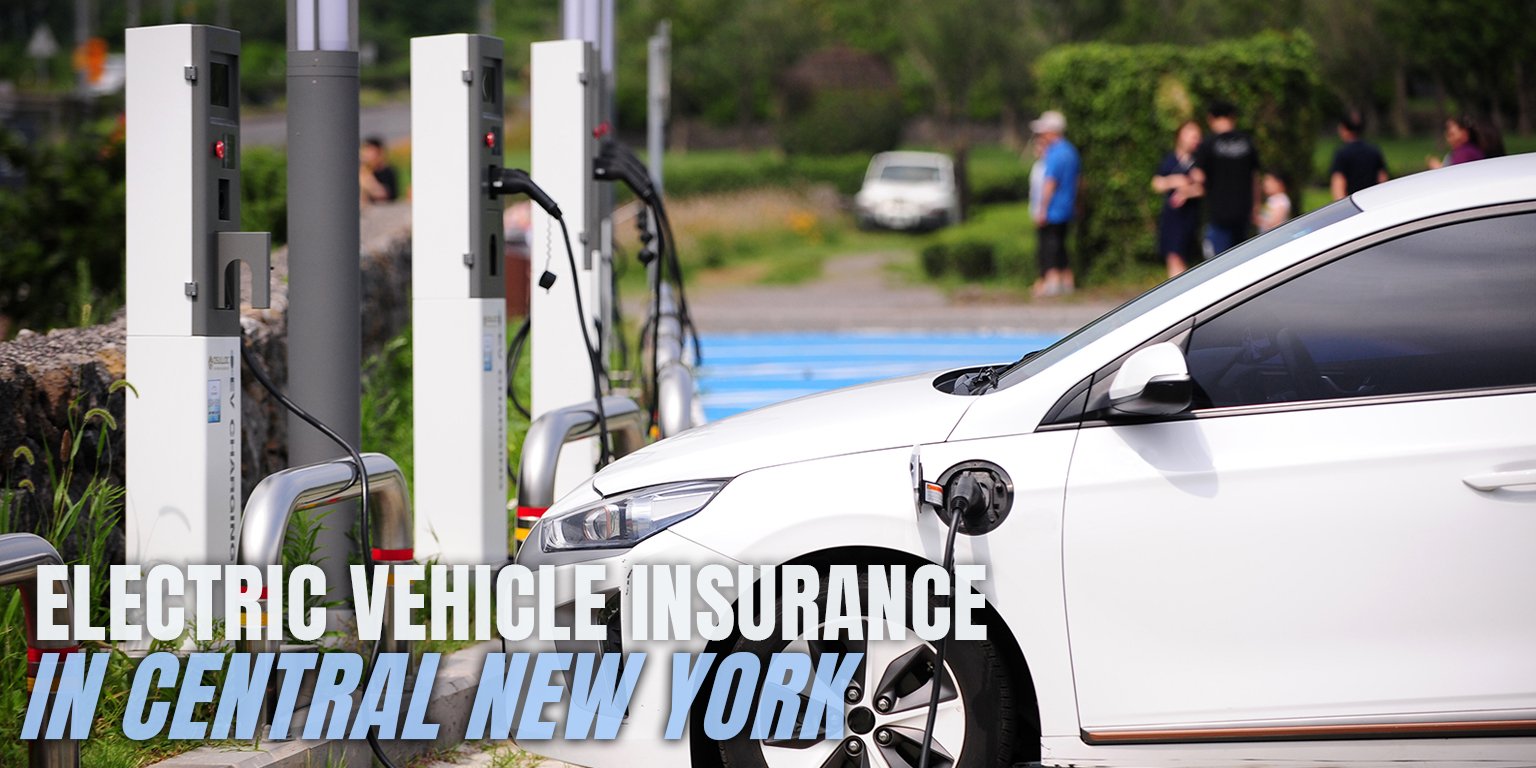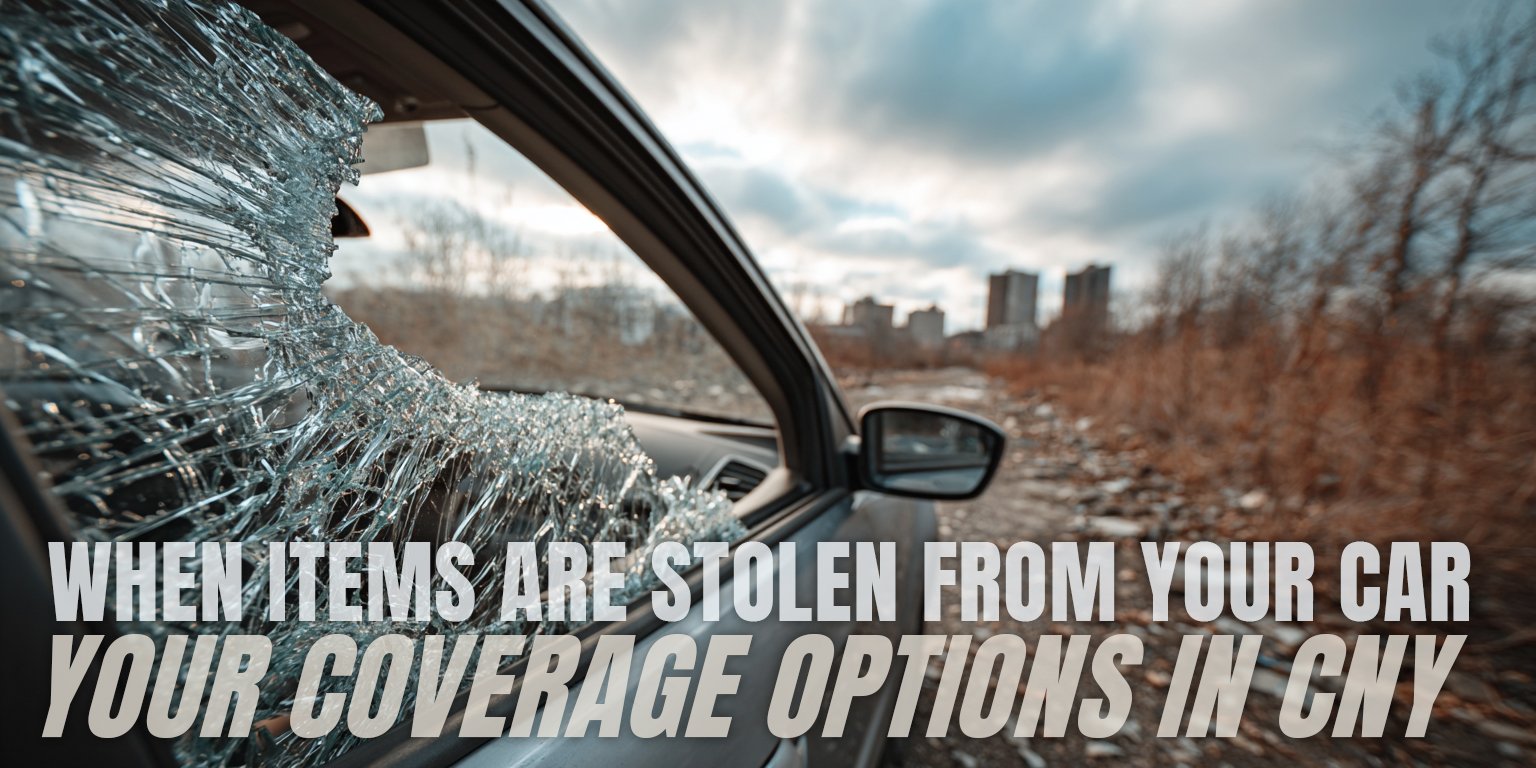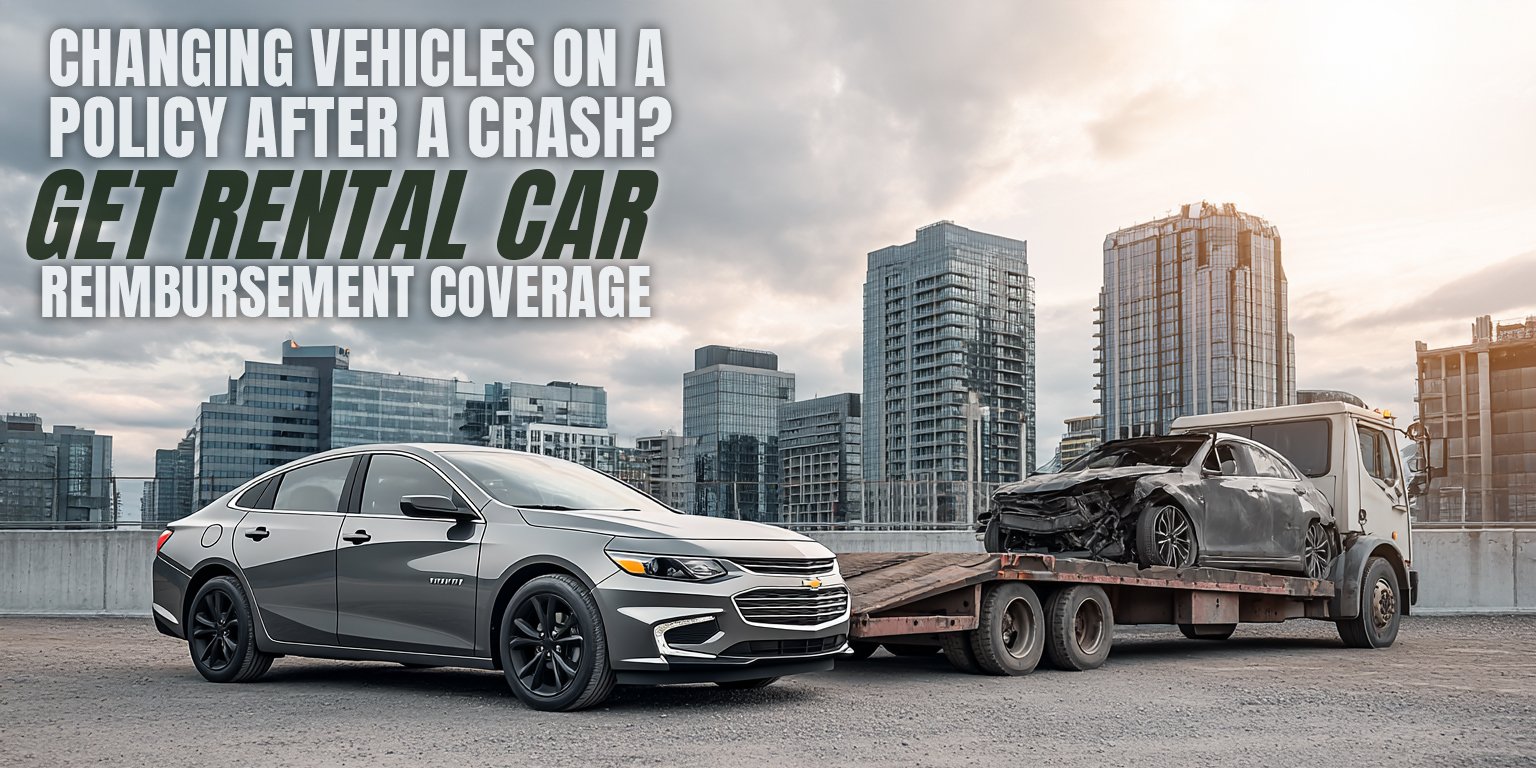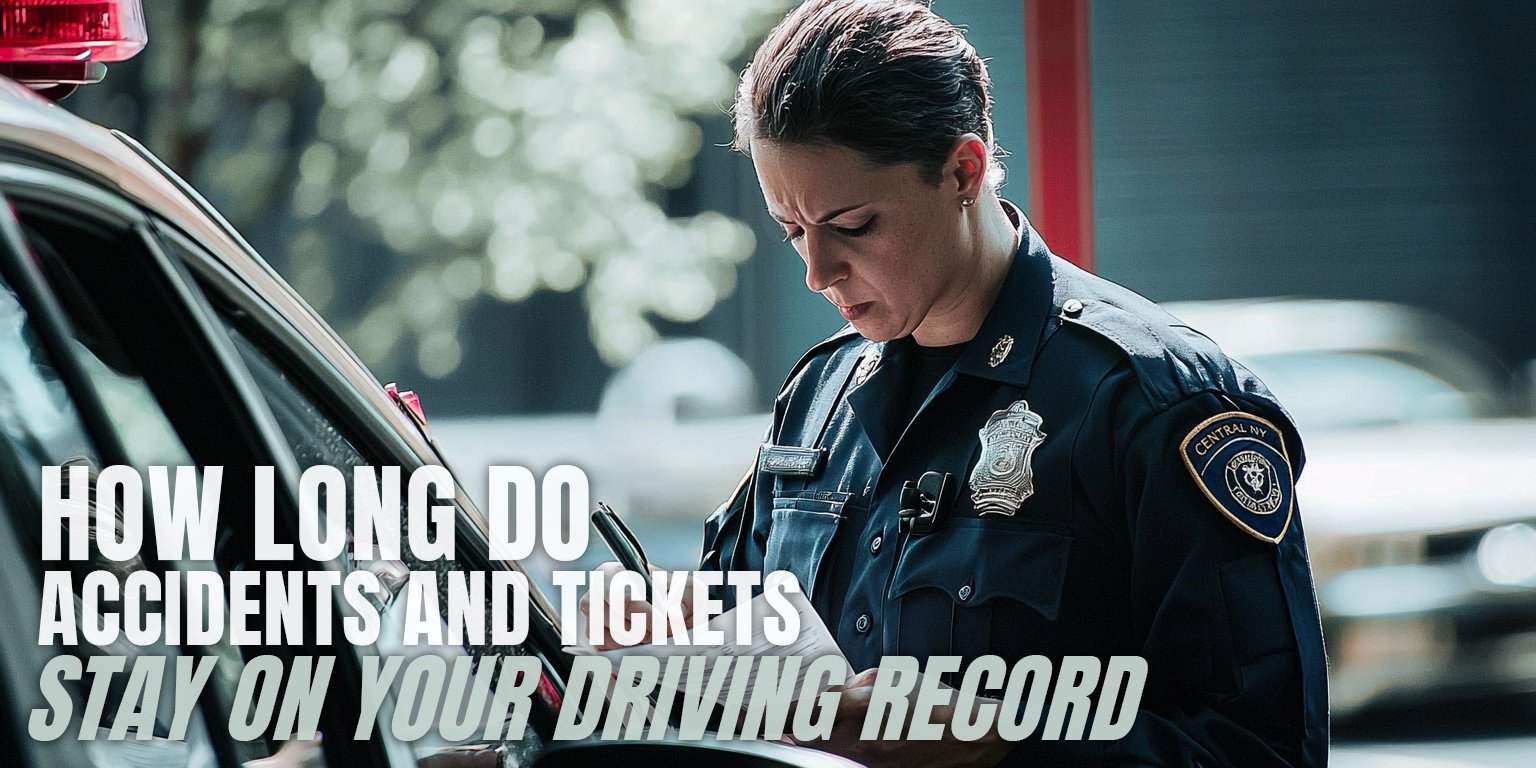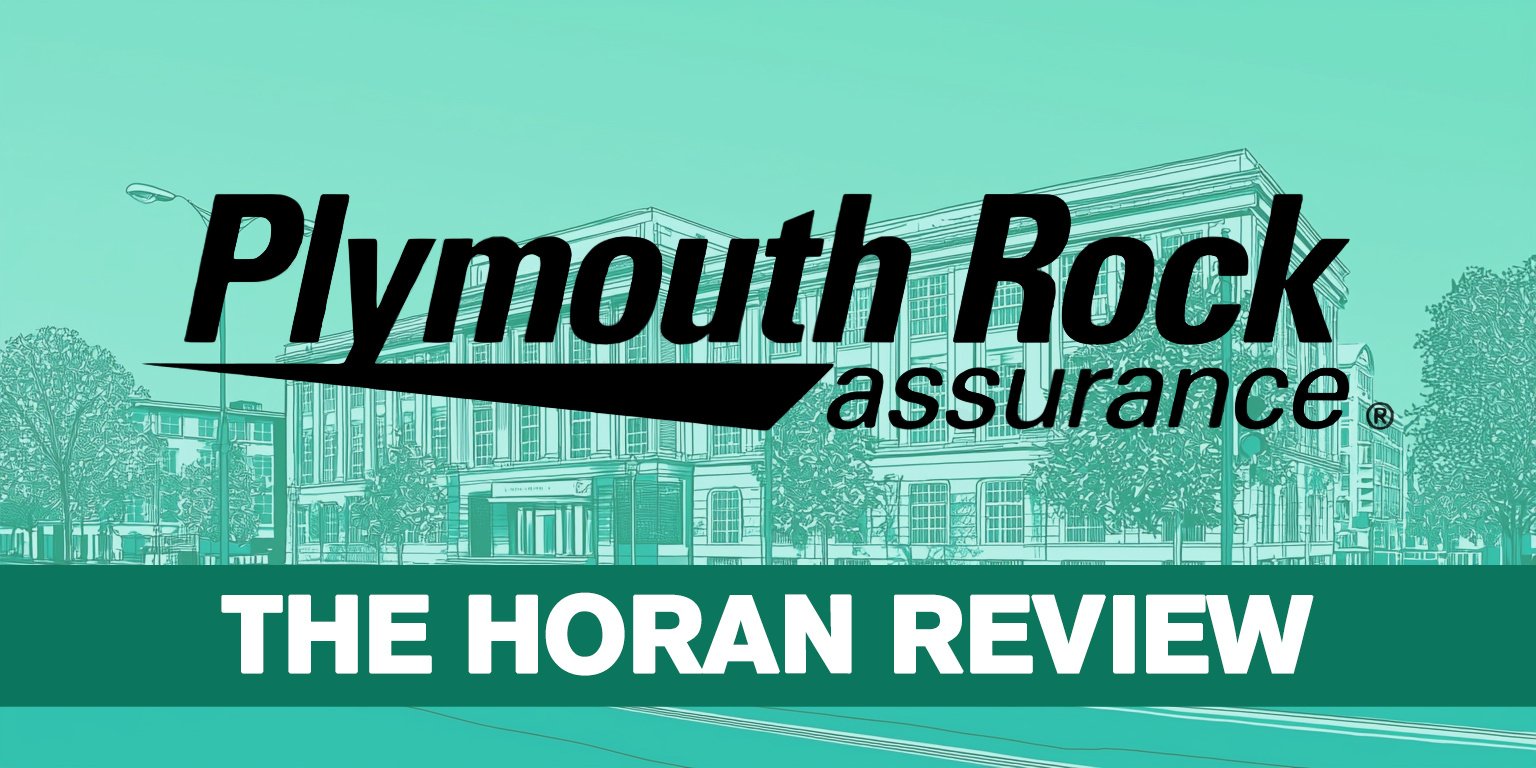A Comprehensive Horan Guide to Auto Insurance
May 15th, 2024
13 min read

Confusion, frustration, and uncertainty—these are just a few of the emotions you might feel when trying to navigate the complex world of auto insurance. You know you need coverage to protect yourself and your loved ones on the road, but with so many options and technical terms, it's hard to know where to start.
You worry about making uninformed decisions due to a lack of understanding, which could lead to buying a policy that isn't quite right for your situation. The thought of not having the proper protection when you need it most can be overwhelming, and the fear of overpaying for coverage you don't fully understand only adds to the stress.
At Horan, we understand the challenges you face when it comes to auto insurance. As an independent agency working with multiple carriers, we have a unique, informed perspective that others don't have. We've seen countless drivers in Central New York struggle with the same concerns and questions, and we're here to help.
In this comprehensive guide, we'll break down the essential components of an auto insurance policy, explain New York State's minimum requirements, and help you understand how factors like deductibles and optional coverages can impact your premiums and protection.
You'll also discover the different paths to obtaining auto insurance quotes and learn how to compare them effectively to find the best value for your money. We'll arm you with the knowledge to make confident, informed decisions about your auto insurance coverage.
Our goal is to provide you with the tools and guidance you need to navigate auto insurance with clarity and composure, ensuring that you have the right protection in place for your unique situation.
Jump to Article Section
- Understanding the Components of Auto Insurance
- Liability Coverage
- Personal Injury Protection (PIP)
- Uninsured/Underinsured Motorist Coverage
- Optional Auto Coverages
- New York State Auto Insurance Requirements
- Three Paths to Getting an Auto Insurance Quote
- Information Needed for Auto Insurance Quotes
- Understanding Auto Insurance Deductibles
- Available Auto Insurance Discounts
- Comparing Auto Insurance Quotes
- Start Your Journey Toward the Right Auto Insurance Coverage
Understanding the Components of Auto Insurance
Auto insurance is a crucial aspect of owning a vehicle in New York State. It not only provides financial protection for you and your assets but is also legally required. However, navigating the various components of an auto insurance policy can be overwhelming, especially for first-time buyers or those who haven't reviewed their coverage in a while.
Before diving into the process of getting auto insurance, it's essential to understand the different types of coverage available and how they work together to create a comprehensive policy. Having a clear grasp of these components will help you make informed decisions when choosing your coverage limits and ensure that you're adequately protected on the road.
Mandatory vs. Optional Auto Insurance Coverage
In New York State, certain types of auto insurance are mandatory, while others are optional. Understanding the difference between these categories is key to building a policy that meets your needs and budget. It's also important to note that the minimum required coverage may not always be sufficient, depending on your individual circumstances.
In the following sections, we'll break down the main components of auto insurance, including
- liability coverage,
- personal injury protection,
- uninsured/underinsured motorist coverage, and
- optional add-ons like collision and comprehensive.
We'll also discuss New York State's specific requirements and why it's often advisable to purchase coverage beyond the minimum limits.
By the end of this guide, you'll have a solid foundation in auto insurance components and be better equipped to navigate the process of getting a policy that fits your unique needs as a Central New York driver.
Let's start by exploring the main types of coverage you'll typically find in an auto insurance policy:
Liability Coverage
Liability coverage is the foundation of any auto insurance policy and is required by law in New York State. This type of coverage comes in two forms:
- bodily injury liability and
- property damage liability.
Both are designed to protect you financially if you're found at fault in an accident that causes injuries to others or damage to their property. Let's take a closer look at each:
- Bodily Injury Liability: This coverage applies when you're at fault in an accident that causes injuries to another person. It helps pay for their medical expenses, lost wages, and even legal fees if you're sued. In New York, the minimum required limits are $25,000 per person and $50,000 per accident. Learn more about bodily injury protection coverage.
- Property Damage Liability: If you're at fault in an accident that causes damage to someone else's property, such as their vehicle or a fence, this coverage helps pay for the repairs or replacement costs. The minimum required limit in New York is $10,000. Learn more about property damage liability coverage.
It's crucial to understand that these minimum limits may not provide adequate protection, especially in accidents that result in severe injuries or extensive property damage.
Personal Injury Protection (PIP)
Personal Injury Protection, also known as PIP or no-fault insurance, is a mandatory coverage in New York State that provides benefits for you and your passengers in the event of an accident, regardless of who is at fault.
This coverage is designed to help cover various expenses related to injuries sustained in an auto accident, including:
- Medical expenses: PIP helps pay for necessary medical treatment, such as hospital stays, surgeries, and rehabilitation.
- Lost wages: If you or your passengers are unable to work due to accident-related injuries, PIP can provide compensation for lost income.
- Other related expenses: PIP may also cover additional costs, such as household services or transportation to medical appointments, if you're unable to perform these tasks due to your injuries.
In New York, the minimum required PIP limit is $50,000 per person. It's important to note that PIP coverage is the primary source of coverage for these expenses, regardless of who is at fault in the accident. It is also primary over private health insurance. Learn more about PIP (no-fault) coverage.
Uninsured/Underinsured Motorist Coverage
Uninsured and underinsured motorist coverage is another mandatory component of auto insurance in New York State. This coverage protects you and your passengers if you're involved in an accident caused by a driver who either doesn't have insurance or doesn't have enough coverage to pay for your damages.
Here's how these coverages work:
- Uninsured Motorist Coverage: If you're in an accident caused by a driver who doesn't have any insurance, this coverage helps pay for your medical expenses, lost wages, and pain and suffering. In New York, the minimum required limits are $25,000 per person and $50,000 per accident.
- Underinsured Motorist Coverage: If you're in an accident caused by a driver who has insurance but their limits are too low to cover your damages, this coverage helps bridge the gap. It can provide additional compensation for your medical expenses, lost wages, and pain and suffering.
These coverages are essential because they protect you from financial hardship in situations where the at-fault driver doesn't have adequate insurance to cover your losses.
In the following section, we'll discuss optional coverages that can provide even greater protection for your vehicle and financial well-being.
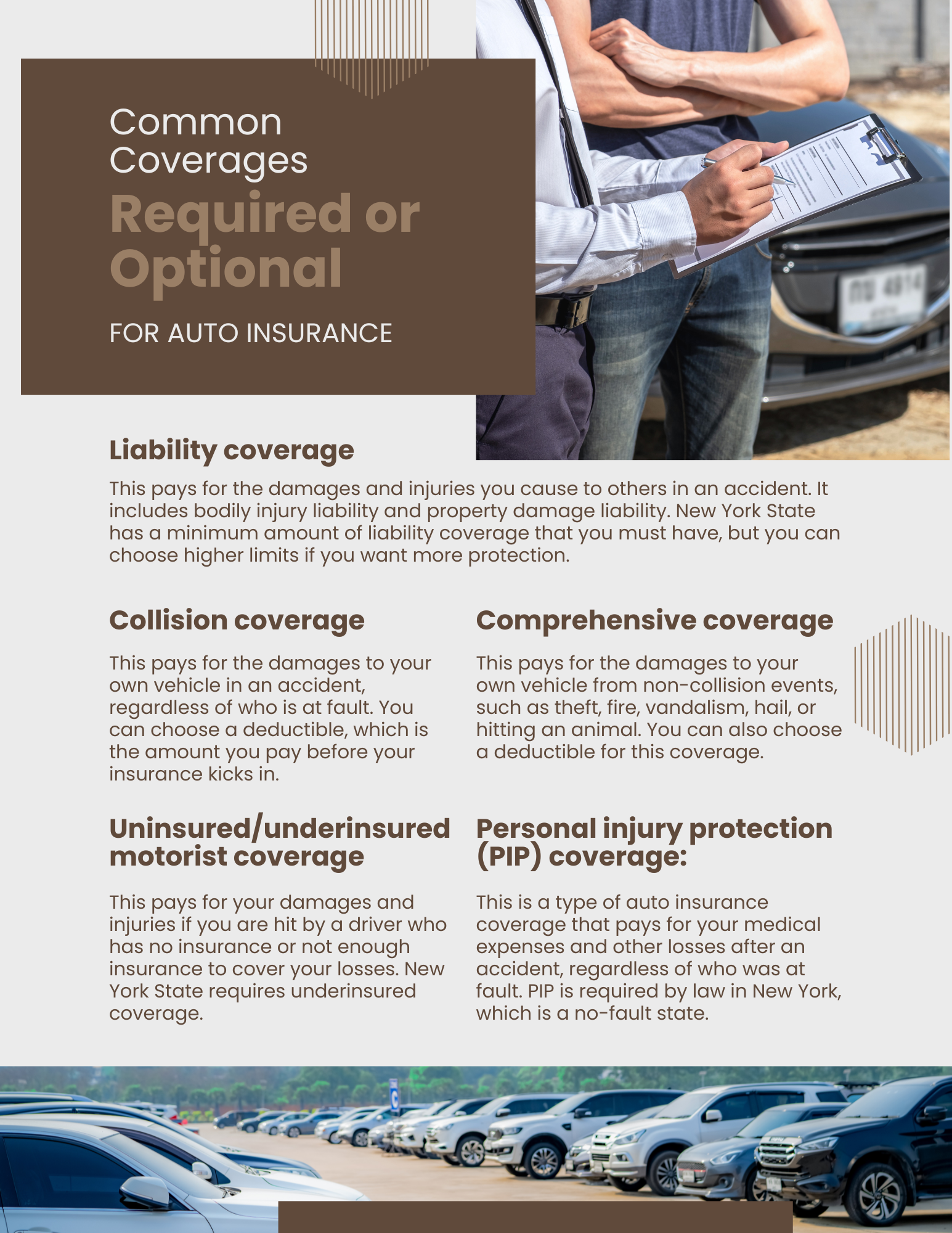
Optional Auto Coverages
While liability, PIP, and uninsured/underinsured motorist coverages are mandatory in New York State, there are several optional coverages that you can add to your auto insurance policy for increased protection.
These optional coverages can help safeguard your vehicle and provide additional benefits in the event of an accident or other covered incident. Let's explore these options in more detail:
- Collision Coverage: This coverage helps pay for repairs or replacement of your vehicle if it's damaged in a collision with another car or object, such as a tree or a fence. If you're at fault in the accident, collision coverage ensures that you can afford to repair or replace your vehicle. If you have a loan or lease on your car, your lender may require you to carry this coverage.
- Comprehensive Coverage: While collision coverage protects your vehicle from accident-related damages, comprehensive coverage safeguards it from non-collision incidents. This can include theft, vandalism, fire, falling objects, and weather-related events like hail or floods. As with collision coverage, your lender may require comprehensive coverage if you have a loan or lease on your vehicle. Learn the differences between comprehensive and collision coverage.
- Rental Car Coverage: If your vehicle is being repaired due to a covered incident, such as an accident or theft, rental car coverage can help pay for a rental vehicle in the meantime. This coverage ensures that you have transportation while your car is in the shop, minimizing the inconvenience and out-of-pocket costs associated with an accident. Learn more about rental car reimbursement coverage.
- Roadside Assistance: This optional coverage provides help if your car breaks down or experiences a minor issue, such as a flat tire. Roadside assistance can include services like towing, battery jump-starts, fuel delivery, and lockout assistance. Having this coverage can give you composure knowing that help is just a phone call away if you encounter car trouble. Learn more about roadside assistance.

When building your auto insurance policy, it's essential to consider your individual needs and budget. While optional coverages may increase your premium, they can provide valuable protection and benefits in the event of an accident or other covered incident.
Understanding the various components of auto insurance, both mandatory and optional, empowers you to make informed decisions when selecting your coverage limits.
New York State Auto Insurance Requirements
As mentioned earlier, New York State mandates certain minimum requirements for auto insurance coverage. These requirements are designed to ensure that all drivers have a basic level of protection and financial responsibility.
Here's a breakdown of the minimum coverage limits required by New York law:
- Bodily Injury Liability: $25,000 per person / $50,000 per accident
- Property Damage Liability: $10,000 per accident
- Personal Injury Protection (PIP): $50,000 per person
- Uninsured Motorist Bodily Injury: $25,000 per person / $50,000 per accident
While these minimum limits provide a foundation for auto insurance coverage, they may not always be sufficient to fully protect you in the event of a serious accident. Here's why:
The Risks of Carrying Minimum Auto Coverage
- Insufficient Liability Protection: If you cause an accident that results in severe injuries or extensive property damage, the minimum liability limits may not be enough to cover all the costs. In such cases, you could be held personally responsible for the remaining expenses, putting your assets and future earnings at risk.
- Limited Personal Injury Protection: The minimum PIP limit of $50,000 may not be adequate to cover all of your medical expenses, lost wages, and other related costs if you or your passengers sustain serious injuries in an accident.
- Inadequate Coverage for High-Value Vehicles: If you cause an accident that involves a newer or high-value vehicle, the minimum property damage liability limit of $10,000 may not be enough to cover the cost of repairs or replacement if you're at fault in an accident.
The Benefits of Higher Coverage Limits
Opting for higher coverage limits can provide you with greater composure and financial protection. Some advantages of purchasing coverage beyond the minimum requirements include:
- Enhanced Asset Protection: Higher liability limits can help safeguard your assets and future earnings in the event of a costly accident.
- Improved Medical Coverage: Increasing your PIP limit can ensure that you and your passengers have access to more extensive medical coverage in case of an accident.
When deciding on your auto insurance coverage, it's essential to weigh your individual needs, risks, and budget. In the following section, we'll discuss how to determine the right coverage limits for your unique situation and explore some common scenarios where higher limits may be advantageous.
Three Paths to Getting an Auto Insurance Quote
When shopping for auto insurance, you have three main options for obtaining quotes: captive agents, direct writers, and independent agents. Each path has its unique advantages and considerations, so it's essential to understand the differences to make an informed decision.
Let's explore these options in more detail:
Captive Agents
Captive agents are insurance professionals who represent a single insurance company, such as Allstate, State Farm, or Farmers. Here's what you need to know about working with a captive agent:
- Captive agents have in-depth knowledge of their company's products and can provide personalized service and guidance.
- They may offer discounts for bundling auto insurance with other policies, such as homeowners or renters insurance.
- However, captive agents can only provide quotes from the company they represent, limiting your ability to compare rates and coverages from multiple insurers.
Direct Writers
Direct writers are insurance companies that sell policies directly to consumers, without the use of agents. Companies like GEICO and Amica are examples of direct writers. Here's what to consider when obtaining quotes from direct writers:
- Direct writers often offer competitive rates and the convenience of online quoting and policy management.
- They may have a more streamlined application process and 24/7 customer support.
- Some direct writers also offer the option to work with licensed insurance professionals who can provide personalized advice and guidance, either online or over the phone.
- However, the level of personalized service may vary depending on the company, and you may not have a dedicated agent assigned to your account.
Independent Agents
Independent agents are insurance professionals who represent multiple insurance companies, allowing them to provide quotes from various insurers. Here's what you should know about working with an independent agent:
- Independent agents can shop around on your behalf, comparing rates and coverages from multiple companies to find the best fit for your needs.
- They can provide personalized advice and guidance, helping you navigate the complexities of auto insurance.
- However, not all independent agents work with the same insurance companies, so it's essential to ask which insurers they represent.
- Agents are paid by the insurance company, so you don't pay for their services.
Which Auto Insurance Path Will You Choose?
When deciding which path to take, consider your personal preferences and needs.
- If you value the convenience of online quoting and are comfortable managing your policy yourself, a direct writer may be the best choice.
- If you prefer working with a dedicated agent who can provide personalized service and guidance through a single carrier, a captive agent may be a better fit.
- If you value having an advocate who can shop around on your behalf and provide personalized advice from multiple insurance companies, an independent agent may be the best choice for you.
 Independent agents, like us, offer the advantage of comparing rates and coverages from various insurers, allowing you to find the most competitive policy that suits your unique situation.
Independent agents, like us, offer the advantage of comparing rates and coverages from various insurers, allowing you to find the most competitive policy that suits your unique situation.
They can also provide guidance and support throughout the insurance process, from quoting to claims handling, while still giving you access to a wide range of insurance options.
Regardless of which path you choose, be sure to compare quotes from multiple sources to ensure you're getting the best coverage at a competitive price.
To learn more about these three paths, read our article titled “Choosing the Right Auto Insurance Path: Captive Agent, Direct Writer, Independent Agent, or Broker?” This will help you understand the differences between these options and assist you in making an informed decision.
In the next section, we'll discuss what information you'll need to provide when obtaining auto insurance quotes.
Information Needed for Auto Insurance Quotes
To receive accurate auto insurance quotes, you'll need to provide certain information about yourself and your vehicle. Having this information ready before you start the quoting process can save you time and ensure that you receive the most accurate quotes possible. Here's what you'll typically need to provide:
- Personal Information: This includes your full name, date of birth, driver's license number, address, and Social Security number. If you have any additional drivers in your household, you'll need to provide their information as well.
- Vehicle Information: Provide the make, model, year, and Vehicle Identification Number (VIN) for each vehicle you want to insure. You may also be asked about your vehicle's safety features, anti-theft devices, and any modifications.
- Driving History: Be prepared to disclose any accidents, violations, or claims from the past 3-5 years for all drivers on your policy. Insurance companies use this information to assess your risk and determine your rates.
It's crucial to provide accurate and up-to-date information when obtaining auto insurance quotes. Inaccurate information could lead to incorrect quotes and potentially even policy cancellations or claim denials down the road.
Once you have this information gathered, you'll be well-prepared to start the quoting process. But we’ll get to that shortly. First, we’ll look at two more important aspects of an auto insurance policy: deductibles and discounts.
Understanding Auto Insurance Deductibles
Deductibles are an essential aspect of your auto insurance policy, as they directly impact your out-of-pocket costs and premium rates. Here's what you need to know about deductibles:
- What is a Deductible? A deductible is the amount you agree to pay out of pocket before your insurance coverage kicks in for a claim. For example, if you have a $500 deductible and file a claim for $2,000, you'll pay the first $500, and your insurer will cover the remaining $1,500.
- How Deductibles Affect Premiums: Generally, higher deductibles result in lower premiums, as you're agreeing to take on more financial responsibility in the event of a claim. Conversely, lower deductibles typically mean higher premiums, as your insurer will be covering a larger portion of the claim.
- Choosing the Right Deductible: When selecting your deductible, consider your financial situation and risk tolerance. If you have sufficient savings to cover a higher deductible, you may opt for lower premiums. However, if you prefer lower out-of-pocket costs in the event of a claim, a lower deductible may be the better choice, even if it means paying slightly higher premiums.
Learn more about auto insurance deductibles and how they work in New York State.
Available Auto Insurance Discounts
Many auto insurance companies offer discounts that can help lower your premiums. Here are some common discounts to look for when shopping for auto insurance:
- Multi-Policy Discount: If you have other insurance policies, such as homeowners or renters insurance, you may qualify for a discount by bundling them with the same insurer.
- Safe Driver Discount: Some insurers offer discounts for drivers with a clean driving record or those who complete an approved defensive driving course.
- Vehicle Safety Features: You may be eligible for discounts if your vehicle has certain safety features, such as anti-lock brakes, airbags, or an anti-theft system.
- Pay-in-Full Discount: Some insurers offer a discount if you pay your premium in full, rather than in monthly installments.
Be sure to ask your insurance provider about any available discounts and how to qualify for them, as they can help you save money on your auto insurance premiums. Learn more about auto insurance discounts.
In the next section, we'll discuss how to compare auto insurance quotes effectively and make an informed decision when choosing your policy.
Comparing Auto Insurance Quotes
Once you've obtained quotes from multiple sources, it's essential to compare them carefully to ensure you're getting the best coverage at the most competitive price. Here are some key factors to consider when comparing quotes:
- Coverage Levels: Make sure that each quote provides the same level of coverage for liability, PIP, uninsured/underinsured motorist, and any optional coverages you've selected. This will help you make an apples-to-apples comparison.
- Deductibles: Pay attention to the deductibles for each coverage, as they can significantly impact your out-of-pocket costs in the event of a claim. Lower deductibles generally mean higher premiums, while higher deductibles can lower your premiums but increase your financial responsibility if you need to file a claim. Learn about the best deductibles for auto insurance.
- Premiums: Compare the total annual or monthly premiums for each quote, taking into account any applicable discounts or fees.
- Company Reputation: Research the financial stability, customer service record, and claims handling process of each insurance company you're considering. Look for ratings from reputable sources like J.D. Power, Consumer Reports, and AM Best. Read our reviews of our insurance partners for a sampling of this kind of research.
Remember, the cheapest option isn't always the best. Strike a balance between exhaustive coverage, affordable premiums, and a reputable insurance provider to ensure you have adequate protection when you need it most.
Start Your Journey Toward the Right Auto Insurance Coverage
In this comprehensive guide, we've covered the essential aspects of auto insurance, from understanding the components of a policy to comparing quotes effectively. By following the advice outlined in this article, you can approach auto insurance with clarity and confidence, knowing that you have the information you need to make the best decisions for your unique situation.
 Choosing the right auto insurance coverage can give you composure and security on the road, protecting you financially and legally in the event of an accident. On the other hand, overlooking the importance of proper coverage or failing to understand the terms of your policy can leave you vulnerable to significant financial losses and legal liabilities.
Choosing the right auto insurance coverage can give you composure and security on the road, protecting you financially and legally in the event of an accident. On the other hand, overlooking the importance of proper coverage or failing to understand the terms of your policy can leave you vulnerable to significant financial losses and legal liabilities.
At Horan, we understand the challenges you face when navigating auto insurance, and we're here to support you every step of the way. With our extensive experience and expertise in the industry, we're uniquely positioned to guide you through the process of securing the right auto insurance policy for your specific circumstances.
As an independent insurance agency, we work with multiple carriers to provide you with a wide range of options and tailor-made solutions. Our knowledgeable agents will take the time to understand your unique needs, answer your questions, and help you compare quotes from various insurers to find the best coverage at the most competitive rates.
We pride ourselves on our commitment to providing exceptional customer service and building long-lasting relationships with our clients. When you choose Horan, you're not just getting an insurance policy—you're gaining a trusted partner who will be there for you every step of the way, from the initial quote to filing a claim and beyond.
Don't let confusion or uncertainty hold you back from getting the auto insurance protection you need.
Click the Get a Quote button below to start your journey toward securing the right coverage for your specific circumstances. Let Horan guide you to the composure and financial security you deserve on the road.
Are you struggling to understand the factors influencing premium pricing in CNY? Explore how to decipher and navigate the complexities of auto insurance costs.
Daniel is an accomplished content creator. He has been working in publishing for almost two decades. Horan Companies hired Daniel as its content manager in November 2022. The agency entrusted its messaging to him. Since then, Daniel has written insurance articles, service pages, PDF guides, and more. All in an effort to educate CNY readers. He's helping them understand the world of insurance so they can make informed decisions.
Topics:








